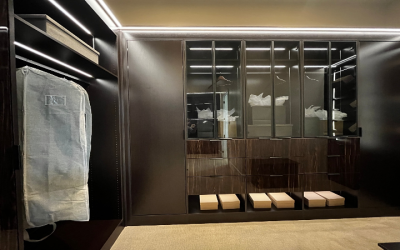In the diverse world of industrial cooling, the Water Cooled Chiller System stands out for its efficiency and effectiveness. These systems play a crucial role in a variety of settings, harnessing the properties of water to manage temperatures in processes and facilities. This article explores the mechanics, benefits, and applications of water cooled chiller systems, providing valuable insights into why they might be the best choice for your cooling needs.
How Water Cooled Chiller Systems Work
At its core, a water cooled chiller system operates on the principle of heat absorption and transfer. The system includes key components such as an evaporator, compressor, condenser, and expansion valve. The process starts in the evaporator, where the refrigerant absorbs heat from the process water. This causes the refrigerant to vaporize, moving into the compressor, which increases the pressure and thus the temperature of the vapor. The hot vapor then flows into the condenser where it releases the absorbed heat to the cooling water. Finally, the refrigerant passes through the expansion valve where it cools down and the cycle repeats.
Benefits of Using Water Cooled Chillers
Water cooled chillers offer numerous advantages over other types of cooling systems, such as air-cooled chillers. Here are some of the key benefits:
- Energy Efficiency: These systems are generally more energy-efficient, especially in environments with high cooling load requirements. They use water as a cooling medium, which is better at heat absorption compared to air.
- Longevity and Durability: Water has a stable cooling capacity and does not fluctuate with ambient temperature changes. This stability helps in prolonging the life of the chiller components.
- Quieter Operation: Unlike air-cooled systems that require fans to dissipate heat, water cooled chillers operate more quietly, making them ideal for environments where noise is a concern.
- Space Efficiency: Typically, water cooled chillers are more compact than air-cooled models because they do not need large fans or extensive spacing for air circulation.
Applications of Water Cooled Chillers
Water cooled chillers are versatile and can be used in various industries where precise temperature control is critical. Some of the common applications include:
- Industrial Manufacturing: Many manufacturing processes need specific temperatures to ensure quality and efficiency. Water cooled chillers can provide this precise cooling.
- Data Centers: They are crucial in data centers to prevent overheating of servers and maintain optimal operating conditions, thus ensuring data integrity and server efficiency.
- HVAC Applications: In large commercial buildings, water cooled chillers help in the efficient management of the building’s heating, ventilation, and air conditioning systems.
- Healthcare Facilities: Hospitals and laboratories use chillers to cool their medical equipment and maintain a controlled environment for patient care and lab work.
Conclusion
The water cooled chiller system is an integral part of modern industrial and commercial operations, offering efficient, reliable, and quiet operation. Its ability to provide significant energy savings and superior cooling capabilities makes it a preferable choice in settings requiring stringent temperature controls. Whether it’s sustaining the optimum environment for manufacturing processes, ensuring the functionality of data centers, or managing HVAC systems in large buildings, water cooled chillers are up to the task, proving their worth as a vital component in various industries. Understanding these systems helps in making informed decisions about cooling solutions that are best suited to meet specific operational needs.


